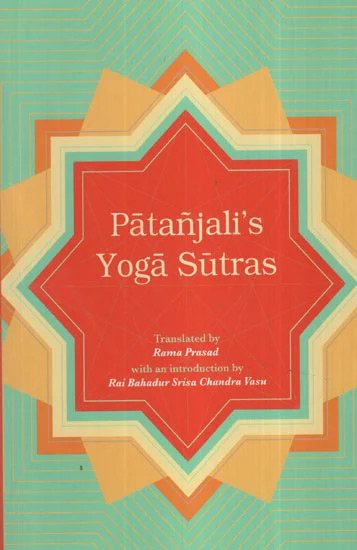Yoga-sutras (with Vyasa and Vachaspati Mishra)
by Rama Prasada | 1924 | 154,800 words | ISBN-10: 9381406863 | ISBN-13: 9789381406861
The Yoga-Sutra 4.5, English translation with Commentaries. The Yoga Sutras are an ancient collection of Sanskrit texts dating from 500 BCE dealing with Yoga and Meditation in four books. It deals with topics such as Samadhi (meditative absorption), Sadhana (Yoga practice), Vibhuti (powers or Siddhis), Kaivaly (isolation) and Moksha (liberation).
Sūtra 4.5
Sanskrit text, Unicode transliteration and English translation of Sūtra 4.5:
प्रवृत्तिभेदे प्रयोजकं चित्तम् एकम् अनेकेषाम् ॥ ४.५ ॥
pravṛttibhede prayojakaṃ cittam ekam anekeṣām || 4.5 ||
pravṛtti—of activity. bhede—there being difference, prayojakam—the director. cittam—the mind, ekam—one. anekeṣām—of the many.
5. There being difference of activity, one mind the director of-the-many.—165.
The Sankhya-pravachana commentary of Vyasa
[English translation of the 7th century commentary by Vyāsa called the Sāṅkhya-pravacana, Vyāsabhāṣya or Yogabhāṣya]
[Sanskrit text for commentary available]
How may it be that many minds may follow in their activities, the desires of one mind? With this object he makes one mind as the director of all the minds; and thence proceeds the difference of activities.—165.
The Gloss of Vachaspati Mishra
[English translation of the 9th century Tattvavaiśāradī by Vācaspatimiśra]
The aphorism is a reply to what has been said, that in the case of there being more minds than one, there would not be obedience to one mind, nor mutuality of relationship:—‘There being difference of activity, one mind the director of the others.’ This might be a defect if the Yogī did not make one mind to be the director of more minds than one acting in more bodies than one. When that is made, no defect remains.
It should not be said that there is no use in more minds than one that is one for each body, when one such mind is posited; nor should it be said that there is no use in making a directing mind, because one’s own mind can serve that purpose. The reason is that that which has been proved to exist by right reasoning, need no more be subjected to the test of being placed in consonant and dissonant positions.
On this says the Purāṇa:—‘The one Lord becomes many by his power of Lordship. For this reason and because having become many he again becomes one, these are certainly born by the differences of the mind, one-fold, two-fold, three-fold and manifold. The Yogīśvara makes his bodies in this way and unmakes them. By some he enjoys objects of enjoyment and by other performs hard penances. He again draws in the bodies as the Sun draws in his ray.’ It is with this object that he says:—‘How is it that all these minds act according, &c.’—5.
